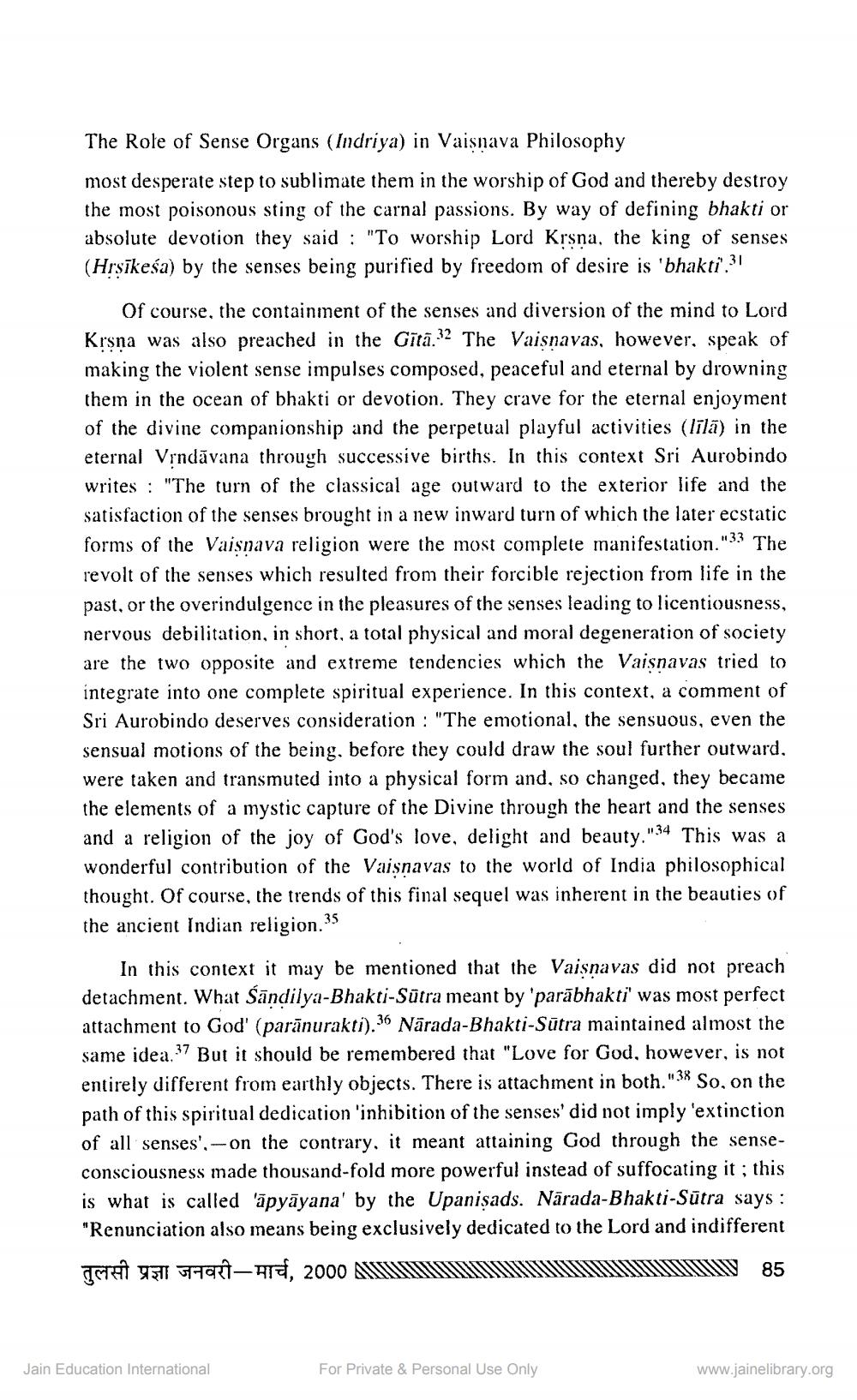________________
The Role of Sense Organs (Indriya) in Vaisnava Philosophy most desperate step to sublimate them in the worship of God and thereby destroy the most poisonous sting of the carnal passions. By way of defining bhakti or absolute devotion they said : "To worship Lord Krsna, the king of senses (Hrsīkeśa) by the senses being purified by freedom of desire is 'bhakti'.?!
Of course, the containment of the senses and diversion of the mind to Lord Krsna was also preached in the Gītā. 2 The Vaisnavas, however, speak of making the violent sense impulses composed, peaceful and eternal by drowning them in the ocean of bhakti or devotion. They crave for the eternal enjoyment of the divine companionship and the perpetual playful activities (līlā) in the eternal Vindāvana through successive births. In this context Sri Aurobindo writes : "The turn of the classical age outward to the exterior life and the satisfaction of the senses brought in a new inward turn of which the later ecstatic forms of the Vaisnava religion were the most complete manifestation."33 The revolt of the senses which resulted from their forcible rejection from life in the past, or the overindulgence in the pleasures of the senses leading to licentiousness, nervous debilitation, in short, a total physical and moral degeneration of society are the two opposite and extreme tendencies which the Vaisnavas tried to integrate into one complete spiritual experience. In this context, a comment of Sri Aurobindo deserves consideration : "The emotional, the sensuous, even the sensual motions of the being, before they could draw the soul further outward, were taken and transmuted into a physical form and, so changed, they became the elements of a mystic capture of the Divine through the heart and the senses and a religion of the joy of God's love, delight and beauty."34 This was a wonderful contribution of the Vaisnavas to the world of India philosophical thought. Of course, the trends of this final sequel was inherent in the beauties of the ancient Indian religion.35
In this context it may be mentioned that the Vaisnavas did not preach detachment. What Šāndilya-Bhakti-Sätra meant by 'parābhakti' was most perfect attachment to God' (paränurakti).36 Nārada-Bhakti-Sūtra maintained almost the same idea 37 But it should be remembered that "Love for God, however, is not entirely different from earthly objects. There is attachment in both."38 So, on the path of this spiritual dedication 'inhibition of the senses' did not imply 'extinction of all senses'.-on the contrary, it meant attaining God through the senseconsciousness made thousand-fold more powerful instead of suffocating it ; this is what is called 'āpyāyana' by the Upanişads. Nārada-Bhakti-Sūtra says: "Renunciation also means being exclusively dedicated to the Lord and indifferent THAN 4511 -Are, 2000 N
IV 85
Jain Education International
For Private & Personal Use Only
www.jainelibrary.org




